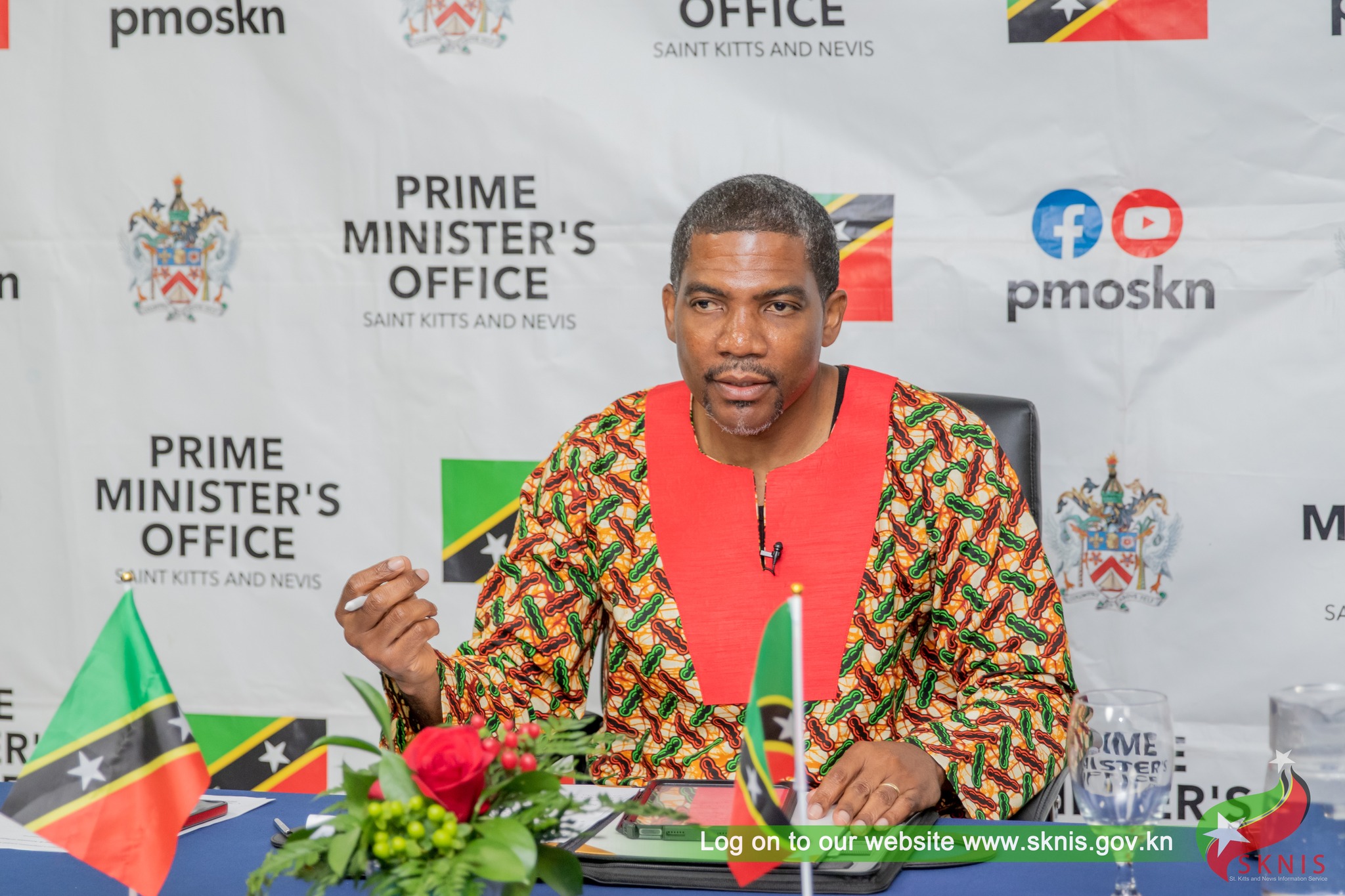Saint Kitts and Nevis Formally Objects to the United States’ 10 Percent Tariff.
The recent imposition of a 10% tariff on imports from Saint Kitts and Nevis by the United States has sparked concern within the Caribbean nation, particularly given the already significant trade imbalance between the two countries. Prime Minister Dr. Terrance Drew has emphasized the substantial trade deficit Saint Kitts and Nevis faces with the U.S., arguing that this economic reality should be a crucial factor in any trade decisions affecting the island nation. The Prime Minister contended that the U.S. benefits considerably more from its trade relationship with the Caribbean than the region does in return, highlighting the contrast with other U.S. trading partners like Canada and Mexico, which enjoy trade surpluses. He underscored the need for a more equitable trade relationship, one that acknowledges the existing disparities and avoids further burdening small island nations.
The trade figures presented by the Comptroller of Customs paint a stark picture of the imbalance. In 2024, Saint Kitts and Nevis’ imports from the U.S. totaled a staggering EC$754 million, while exports to the U.S. reached a mere EC$24 million. This massive discrepancy translates to a trade deficit of nearly three-quarters of a billion Eastern Caribbean dollars, placing Saint Kitts and Nevis in a vulnerable position. The Prime Minister’s argument is that such a significant deficit underscores the unfairness of imposing additional tariffs, which will inevitably increase the cost of goods for the people of Saint Kitts and Nevis. This economic pressure on an already disadvantaged partner in the trade relationship further strengthens the nation’s case against the tariffs.
Zooming out to the broader Caribbean context, the trade imbalance becomes even more pronounced. Prime Minister Drew pointed to a collective $54 billion trade deficit that the Caribbean Community (CARICOM) faces with the United States. This regional perspective emphasizes the systemic nature of the issue and underscores the vulnerability of small island developing states within the global trading system. The imposition of tariffs on these nations, already struggling with significant trade deficits, threatens to exacerbate economic challenges and hinder sustainable development. This regional perspective reinforces the call for a more balanced and equitable trading partnership between the U.S. and the Caribbean.
Prime Minister Drew’s assertions rest on the fundamental principle of fair trade. He argues that the existing trade deficit demonstrates that Saint Kitts and Nevis is not unfairly benefiting from its trade with the U.S. and therefore does not warrant punitive tariffs. Instead, he advocates for a more nuanced approach to trade relations, one that considers the specific economic vulnerabilities of small island developing states and promotes mutually beneficial economic partnerships. The Prime Minister’s stance is that adding tariffs onto an already significant trade deficit further disadvantages Saint Kitts and Nevis and the wider Caribbean region, exacerbating the economic challenges these small island nations face.
The core of Saint Kitts and Nevis’ argument against the imposed tariffs lies in the disproportionate impact on its economy. The Prime Minister’s concern is that increased import costs will translate directly into a higher cost of living for its citizens. Essential goods and services sourced from the U.S. will become more expensive, further straining household budgets and potentially hindering economic growth. This argument emphasizes the real-world consequences of trade policies and the importance of considering their impact on vulnerable populations. The Prime Minister’s contention is that the tariffs represent an unfair burden on the people of Saint Kitts and Nevis, disproportionately impacting their ability to afford essential goods and maintain their standard of living.
In conclusion, Saint Kitts and Nevis is advocating for a reassessment of the trade relationship with the United States, emphasizing the existing trade deficit and the potential for further economic hardship resulting from the imposed tariffs. The nation’s position is that the tariffs are unjustified given the already significant trade imbalance, and they will further burden the economy and its citizens. Prime Minister Drew’s appeal for a more balanced and equitable trading partnership reflects the broader concerns of small island developing states facing similar challenges in the global trade landscape. The call is for a more nuanced and considerate approach to trade policy that recognizes the unique vulnerabilities of these nations and promotes sustainable economic development for all parties involved.
Share this content:












Post Comment